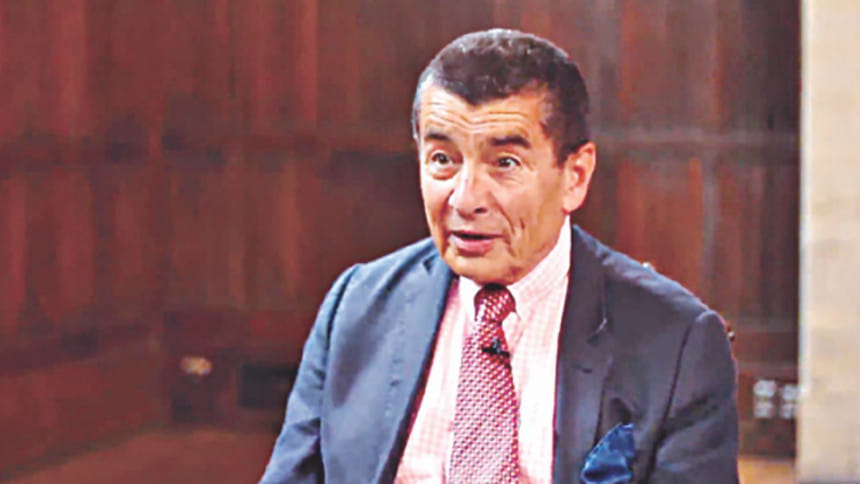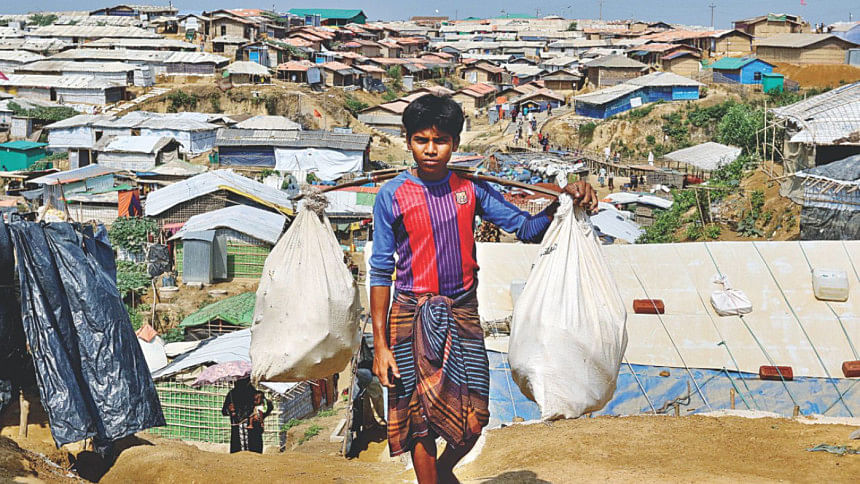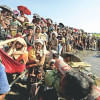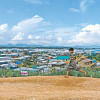Myanmar's Crime Against Humanity: ICC likely to allow investigation

The International Criminal Court has sought to know Bangladesh's opinion on whether it can exercise jurisdiction over the deportation of Rohingyas from Myanmar to Bangladesh. Considering the significance of the move, The Daily Star interviewed some international law experts to know their views on it. Today we are running the interview of Sir Geoffrey Nice, a former ICC prosecutor.
“The application by the Prosecutor [Fatou Bensouda] would look to me likely, or even very likely, to succeed, not least because the statute [Rome Statute] and all the law assembled in her Application make the necessary interpretation possible and because all moral right must be on the side of allowing the Prosecutor to go ahead and investigate,” he said.
Even if the application to the president of the pre-trial division at the ICC did not succeed immediately, or was refused by her, there is the possibility of an appeal to set the law clearly, he said.
“I remain very hopeful that the jurisdiction will finally be allowed,” said the British jurist during an email interview with The Daily Star.
Sir Nice is former deputy prosecutor of the ICC for former Yugoslavia and the principal prosecution trial attorney in the case against Slobodan Milosevic, the world's first president to be indicted for war crimes by an international criminal court. Around 10 years ago he contributed to the report "Crimes in Burma" which was prepared in 2009 by Harvard Law School. Their examination of UN documents showed a range of human rights and humanitarian law violations in Myanmar since 1992.
On April 9, ICC prosecutor, Fatou Bensouda, asked the Hague-based court to rule whether it had the jurisdiction over deportation of the Myanmar nationals, a possible crime against humanity. On May 7, ICC wrote a letter to Bangladesh seeking its observations on the matter.
Against this backdrop, The Daily Star approached Sir Geoffrey Nice, who made the above observations.
Below, we have published the full interview ad verbatim.
DS: Myanmar is not a party to the Rome Statute, but Bangladesh, a country which is the victim of forced deportation, is. ICC has written to Bangladesh seeking its opinion. Is there any precedence of such investigation by the ICC? What's your opinion?
Nice: The issue has been discussed from time to time but is the subject of no prior ruling. I have read the Prosecutor's application, which seems, to me, very well drafted. Although there may be counter arguments to come they are bound to be from Myanmar, or from countries fearing they may be in Myanmar's position at some point, which would not want to lose the “advantage” they have of not being parties to the Rome statute. Their arguments are bound to appear self-serving. The application by the Prosecutor would look to me likely, or even very likely, to succeed, not least because the statute and all the law assembled in her Application make the necessary interpretation possible AND because all moral right MUST be on the side of allowing the Prosecutor to go ahead and investigate. Innocent people are driven from their homes across a border to a foreign land by a crime against humanity and expulsion (as opposed to internal displacement) which is only complete when the victims set foot on that foreign land. It would look like an affront to common sense and something of a lawyer's trick on the public for the court not to have jurisdiction.
DS: As there is no such precedence, how can the ICC go ahead?
Nice: The statute is sufficiently flexible and undefined in parts to allow the interpretation the prosecutor seeks. Even if the application to the president of the pre-trial division does not succeed immediately, or is refused by her, there is the possibility of an appeal to set the law clearly, and I remain very hopeful jurisdiction will finally be allowed.
DS: How should Bangladesh respond to the letter from the ICC?
Nice: It can respond in any way that its lawyers' advice and it chooses, and that could be to present the arguments against saying there is jurisdiction. I have no knowledge of the likely internal political sensitivities that could incline Bangladesh to be obstructive or the external relations with its other neighbour India that could incline it to be obstructive. But even if it makes arguments against jurisdiction, those arguments should not affect the correct legal decision being reached; Bangladesh may have particular practical problems/issues it can raise, but the underlying question is a purely legal one.

DS: The UN Security Council (UNSC) has so far not referred Myanmar's situation to the ICC because of oppositions from veto powers China and Russia. Its chance is also slim. Therefore, trial of the atrocious crimes mostly depends on the ICC. What is your opinion?
Nice: The power of the Security Council (SC) to refer crimes concerning situations in non-ratifying countries to the ICC has always been subject to the actual or threatened veto of any member of the Permanent Five (Russia, China, US, France, UK). This has meant that efforts have not been made to refer North Korea to the ICC because it was known China would veto. Similarly, even before the present problems for Burma, as then more commonly described, it was hoped the generals could be brought to book.
It has always been thought that the US would veto any effort to get Israel directly to the ICC (although there have been some self-referrals by the Palestinian Authority that have shown the power of veto is not everything in certain cases). But the awful truth is that the Security Council -- by what it is expected to do -- stands in the way of victims such as the Rohingya Muslims and many others getting international justice and accountability of the very worst of criminals.
All we can do is to keep showing the SC for what it is and hoping one day it will be shamed into better action or be reformed. I and another raised the possibility of genocide being a possible consequence for the Rohingya about four years ago, and a consequence, if it happened. Others I know were raising similar issues then despite a deal of international indifference. But it was only when investigations that could not be overlooked, that the Rohingya became the subject of worldwide understanding and sympathy and this sentiment may well be behind the prosecutor's willingness by her application to get as close as she may to China by raising the possibility of having individuals in Myanmar state brought to count.
DS: Evidence collection of the crimes against humanity is an important factor. However, Myanmar authorities have allegedly destroyed evidences of atrocities. What is your suggestion?
Nice: Well, there has also been a great deal of witness testimonies taken by many individuals. Preparing dossiers of witness statements now, when the prospect of an ICC investigation and trial is uncertain, may seem like work that could be wasted. Not so. Once in the file, the material can be retrieved as soon as investigators or lawyers want. I was associated with an organisation called Indict that sought to have Saddam Hussein indicted. No chance at the time. But much later when he was arrested, it was the evidence of that organisation, Indict, which featured prominently at the trial, I believe. Contemporary records -- in whatever form-- are invaluable.

 For all latest news, follow The Daily Star's Google News channel.
For all latest news, follow The Daily Star's Google News channel. 








Comments